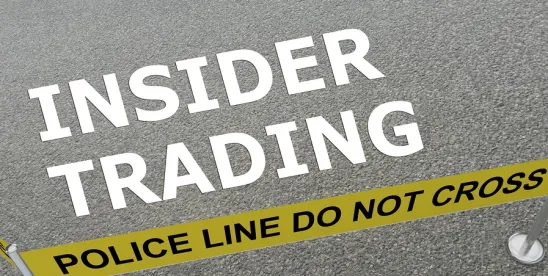The lawsuit, which survived both a motion to dismiss (read here) and motion for summary judgment (read here), has been brought under the SEC’s novel theory of shadow trading.
Since its outset, the SEC has tried to paint this like any other insider trading case – Panuwat, a senior executive at mid-sized oncology-focused biopharmaceutical company Medivation, was one of a handful of senior executives who helped facilitate Medivation’s acquisition by Pfizer. The acquisition itself was confidential: it was discussed using code words; meetings happened behind closed doors; and information directly related to the deal was kept secret. On August 18, 2016, Medivation’s CEO sent a select group of Medivation employees, including Panuwat, an email stating that Pfizer wanted the acquisition “in this weekend” and named a specific price point for it. Only seven minutes later Panuwat began purchasing call option contracts in Incyte, a drug company that the SEC described as being “strikingly similar to Medivation.” Under the SEC’s theory, Panuwat believed that an announcement of Medivation’s acquisition would likely cause the stock prices of similar companies like Incyte to also go up. Panuwat purchased 578 Incyte call options for a total of $116,905. Medivation publicly announced that it would be acquired by Pfizer on August 22, before the markets opened. That day, Incyte’s stock price closed 7.7% higher than the prior trading day’s close.
There is little question that if Panuwat traded in Medivation’s securities based on material non-public information, it could amount to insider trading. But this case is different, no matter the SEC’s statements to the contrary, because Panuwat did not trade in Medivation’s securities but in the securities of a different company. At trial, both sides focused on explaining why that should or should not matter. Ultimately, the jury appears to have agreed with the SEC’s position that it did not matter which company Panuwat traded in, only that he traded on material non-public information. In a statement issued by the SEC Division of Enforcement Director Gurbir S. Grewal, the SEC emphasized that the jury agreed with its position that “this was insider trading, pure and simple. Defendant used highly confidential information about an impending announcement of the acquisition of biopharmaceutical company Medivation, Inc., the company where he worked, by Pfizer Inc. to trade ahead of the news for his own enrichment.”
The Trial
The trial kicked off with testimony from an investment banker who worked on Medivation’s 2016 sale to Pfizer. The investment banker testified that Incyte and Medivation were both midsize, cancer-focused drug manufacturers, making them peer companies. The SEC elicited testimony that the two companies had “similar characteristics, similar revenue scale, similar lines of business, similar trading values.” The investment banker also testified that the negotiations were kept confidential and code names were assigned to the project and the companies involved.
Panuwat’s defense focused on intent. His testimony was presented to the jury on two occasions. First, the SEC presented the jury with parts of Panuwat’s deposition testimony taken in 2020 and 2023. Panuwat later took the stand to testify in his case-in-chief. At trial, Panuwat testified that he did not purchase the Incyte call options as a result of any confidential information he had obtained in the course of his employment at Medivation. Rather, he testified that his decision to invest in Incyte was motivated by a July 2016 Goldman Sachs analyst’s report recommending investors purchase Incyte call options before the company’s earnings report on August 9, 2016. Panuwat started to monitor the company’s earnings report around that time. He watched the stock price drop and ultimately purchased the stock on August 18 after there was another drop in price. But Panuwat did not tell any of that to the SEC when he was deposed in 2020 and, instead, stated that he could not remember why he invested.
At trial, Panuwat attempted to justify the size of his investment, which was significantly larger than any other trade he had made, by explaining that he was looking to minimize his tax bill on investment gains he made earlier in the year. The SEC again established that Panuwat did not mention his purported tax strategy during his 2020 deposition.
The SEC focused on the number of coincidences raised by Panuwat’s testimony:
- It was “just a coincidence” that Panuwat executed his Incyte trades seven minutes after he got an email from his CEO about the acquisition.
- It was “just a coincidence” that Panuwat did not tell a colleague with whom he frequently exchanged stock information that he planned to invest in Incyte.
- It was “just another coincidence” that Panuwat had actively followed Incyte for years but never traded in it before he learned of the acquisition.
- It was “just a coincidence” that Panuwat began selling his Incyte options two days after the Pfizer acquisition was announced, which had caused the stock prices of Medivation and Incyte to go up.
Panuwat concluded his direct examination by telling the jurors that “not for one second” did he think his Incyte stock purchases might have violated federal securities law. Based on its quick verdict, the jury seems to have been dubious of the coincidences riddled throughout Panuwat’s story. It also likely did not help that the judge declined Panuwat’s motion in limine to issue a “good faith defense” instruction to the jury, which would have provided that Panuwat could not have acted with intent to defraud if he acted in good faith.
Are Criminal Prosecutions Next?
The short answer is yes. Panuwat’s civil trial lays the basis not only for the SEC to bring additional civil shadow trading cases, but also for federal prosecutors to charge shadow trading criminally. As with any criminal case, the burden of proof is higher. Rather than establish liability by a preponderance of the evidence, as the SEC had to do, criminal prosecutors will have to prove beyond a reasonable doubt that the defendant committed securities fraud. The intent requirement is also different; criminal prosecutors must prove that the defendant willfully violated securities laws.
An insider trading case might make the leap from civil to criminal based on the significance of the wrongdoing, i.e., how much money was involved, how many people were affected, for how long did the insider trading persist, and was the person who traded a fiduciary. It is also helpful to have a cooperator or whistleblower who can corroborate what happened and help the government meet its higher burden of proof. In light of the US Department of Justice’s latest push for cooperators to come forward (read more here and here), corporate whistleblowers might be enticed to disclose potential shadow trading by a friend or colleague who ignored internal controls or escaped detection by compliance monitoring.
Considerations for Your Insider Trading Policy
While it remains to be seen whether Panuwat will be cabined to its rather unique set of facts or open the floodgates to a new era of aggressive prosecution of insider trading, the SEC will almost certainly seek to capitalize on this win. The prime takeaway should be that trading on material non-public information is prohibited, period, without regard to which entity’s equities are traded. Public companies, broker dealers, registered advisors, and compliance professionals should promptly update their insider trading policies to inform all employees and traders who may come to possess material non-public information not to trade on or personally benefit from that information.
Public companies are required to attach as an exhibit to their Form 10-Ks any “insider trading policies and procedures governing the purchase, sale and/or other dispositions of the registrant’s securities” that “are reasonably designed to promote compliance with insider trading laws, rules and regulations.” The decision in Panuwat should prompt legal and compliance teams to clarify their trading policies and training programs to expressly counsel against the use of material non-public information to trade in peer companies. To minimize corporate liability, it is important to have in place updated policies and procedures that counsel against shadow trading.





 />i
/>i

